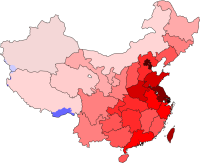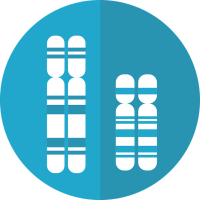Using NLP techniques to discover 1) new e-cig products online and 2) proposed health claims that users advocate for.

Using NLP techniques to discover 1) new e-cig products online and 2) proposed health claims that users advocate for.

Future wireless networks will use high-frequency millimeter-wave (mmWave) links for transmitting and receiving information with high throughput. A key difference between mmWave links and conventional sub-6GHz links is that mmWave links are severely affected by weather conditions. Students working on this project will use a state-of-the-art mmWave radar to assess the impact of wind speed, temperature, humidity, and other factors on the high-frequency link. The end goal of the project is to develop a classifier that can infer weather conditions based on the signal received from the mmWave radar. In this project, students are expected to learn how the mmWave radar works, design experiments to obtain labeled data, perform measurements, and develop the classifier.

Freshwater supply is critical for managing and meeting human and ecological demands. However, while stocks of water in both natural and artificial reservoirs are helpful for increasing availability, droughts and floods, as well as whiplash events affect reliability on these systems, posing grave consequences on water users. This risk is particularly salient in the state of California, where many local communities have been plagued by extreme hydrological events. In this current research, we contribute to California’s Water Data Challenge effort where a diverse group of volunteers convened to form a multi-disciplinary team that addresses the crucial issues of extreme events in California using data science approaches. Members include researchers and professionals who come from a range of backgrounds representing academia and private sectors. We combine a range of publicly available datasets with Machine Learning (ML) techniques to explore predictability of extreme events during California’s water years. More specifically, we use a variety of water districts and showcase how ML prediction models are not only able to predict the flow of water at varying time horizons, they capture uncertainties posed by the climate and human influences.

In 2013, the Chinese government launched its grand initiative to eradicate rural poverty by 2020. The initiative has made great progress since then, yet little rigorous empirical evidence is available due to data limitations. This project aims to use big data through both official and social media to analyze the trends, achievements, and challenges of this initiative and offer implications for the future and from a comparative perspective.

This project is the first comprehensive examination of African North Americans who crossed one of the U.S.-Canada borders, going either direction, after the Underground Railroad, in the generation alive roughly 1865-1930. It analyzes census and other records to match individuals and families across the decades, despite changes or ambiguities in their names, ages, “color,” birthplace, or other details.

Memory is a basic function of our brain that enables us to use the past experiences to service the present and future on a daily base, and memory function is often disrupted in neurological and psychiatric diseases, such as Alzheimer’s disease and posttraumatic stress disorder. To understand the molecular mechanism of memory storage, we will focus on DNA methylation, a chemical modification of our genome, that is hypothesized to play a critical role for memory. We have identified thousands of DNA methylation changes at numerous genomic loci occurred during the formation of fear and reward memory in the mouse brain. We will develop new computational tools to analyze these changes of DNA methylation and search for the common sequence features of these genomic loci. The result of this project will lead to a systematic understanding of the principle on the function and regulation of DNA methylation in memory, and will pave the way to develop new therapeutic strategies for diseases involved memory defects.

Our lab is interested in aneuploidy, or the incorrect number of whole chromosomes and chromosome arms. A challenge in this area of research is that karyotypes require a large number of proliferating cells for analysis. To address this, our lab and collaborators developed new algorithms to identify aneuploidy alterations from DNA sequencing data. Here, the project goal is to implement these algorithms at Columbia, and subsequently to apply these analysis methods to samples generated in the lab and patient samples. Building on this, the DSI student may also develop new algorithms for use with single-cell sequencing data and RNA sequencing data. Experience in one or more of the following is a must: UNIX, R, and python. The DSI student will be mentored by Dr. Alison Taylor, and he/she will also work closely with all lab members.
